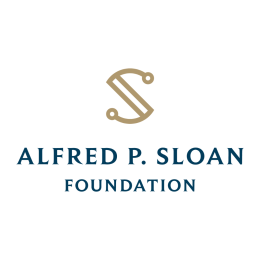
The University of California has been awarded a grant by the Alfred P. Sloan Foundation to support the development of a UC-wide network of Open Source Program Offices (OSPOs). This award leverages the work of the Open Source Program Office at UC Santa Cruz (UCSC) and funds a collaboration of UC campuses at Berkeley, Davis, Los Angeles, Santa Barbara and San Diego with UCSC to promote open source research, teaching, and public service.
The $1.85 million grant will serve to institutionalize the OSPO approach in the UC system by creating coordinated activities that support local campus OSPOs and building a network that can leverage multi-campus efforts. This award comes after another grant from the Sloan Foundation established the Open Source Program Office at UCSC nearly two years ago.
UCSC Professor of Computer Science James Davis is the principal investigator on this grant as the new director of UCSC OSPO. UCSC OSPO Executive Director Stephanie Lieggi will be co-principal investigator, along with Fernado Perez and Stéfan van der Walt at UC Berkeley; Peter Brantley and Vladimir Filkov at UC Davis; Todd Grappone and Tim Dennis at UC Los Angeles; David Minor and Erik Mitchell at UC San Diego; and Amber Budden and Jonathan Balkind at UC Santa Barbara (UCSB).
The UCSB collaboration is led by Budden (Associate University Librarian for Digital Strategies, Library), Balkind (Assistant Professor, Computer Science) and Greg Janée (Director of Research Data Services, Library) in partnership with faculty and staff from across campus. UCSB will receive $328,942 as part of this award and will create a postdoctoral position focused on open source landscape analysis and sustainability.
“We are very excited to be part of this collaboration and connect our open-source campus community with services and resources within the UC system,“ says Budden. “UCSB has broad expertise in open source development and we look forward to engaging the community in these discussions and developing synergies with other information technology and open source initiatives emerging on campus.”
The establishment of OSPOs reflects the recognition in the UC system of the value of open source in increasing the impact of academic research and furthering the education and public services missions. Open source has been traditionally thought of as it relates to making software publicly available, but it can also include a more expansive view that includes library sciences, hardware development, and more.
UCSC was the first public university in a large state-wide system to establish an OSPO. While there are now several OSPOs at universities throughout the country, UC’s model is unique in that it uses a networked approach to leverage the diverse range of knowledge that exists throughout the system. This means that the UC network will be able to share existing resources and take unified approaches to common challenges.
With the new grant, the UC OSPO network will pursue three main goals: to strengthen collaboration and knowledge sharing among the campuses, highlight to UC leadership the value of the network and OSPOs at various campuses, and identify resource and governance structure to allow the network to grow and thrive beyond the grant period. The UC OSPO network is also intended to serve as a model for other large systems to follow.
More information
For more information about this grant award and the UC OSPO network, visit https://news.ucsc.edu/2024/04/uc-ospo-network.html
About the Alfred P. Sloan Foundation
The Alfred P. Sloan Foundation is a not-for-profit, mission-driven grantmaking institution dedicated to improving the welfare of all through the advancement of scientific knowledge. Established in 1934 by Alfred Pritchard Sloan Jr., then-President and Chief Executive Officer of the General Motors Corporation, the Foundation makes grants in four broad areas: direct support of research in science, technology, engineering, mathematics, and economics; initiatives to increase the quality, equity, diversity, and inclusiveness of scientific institutions and the science workforce; projects to develop or leverage technology to empower research; and efforts to enhance and deepen public engagement with science and scientists.


